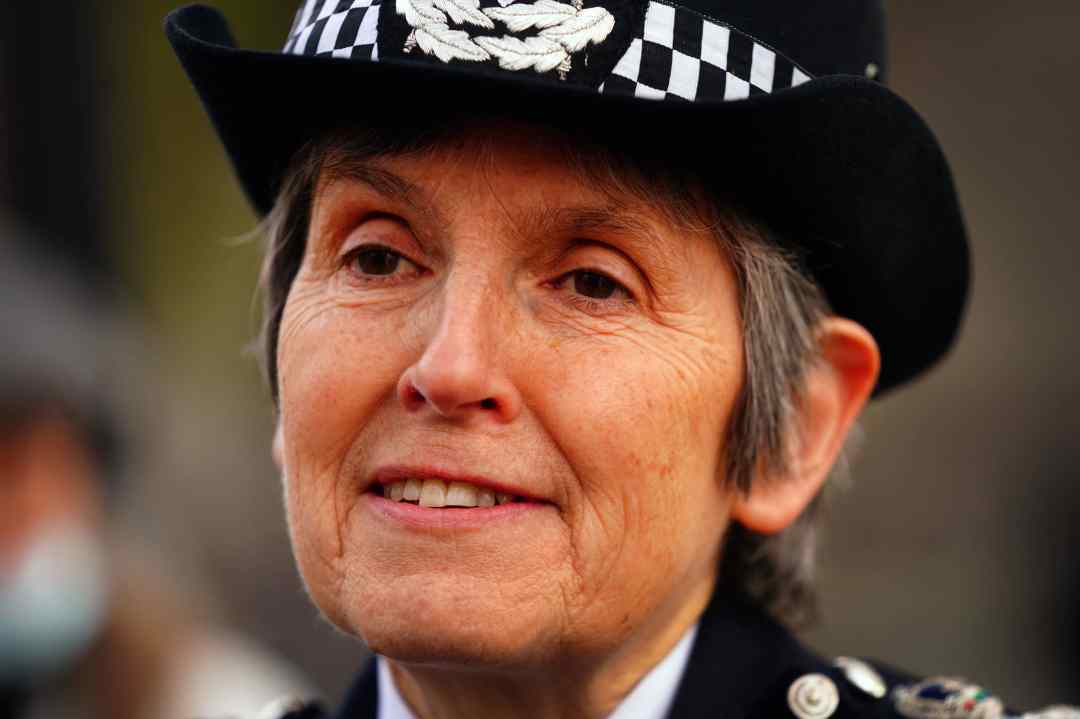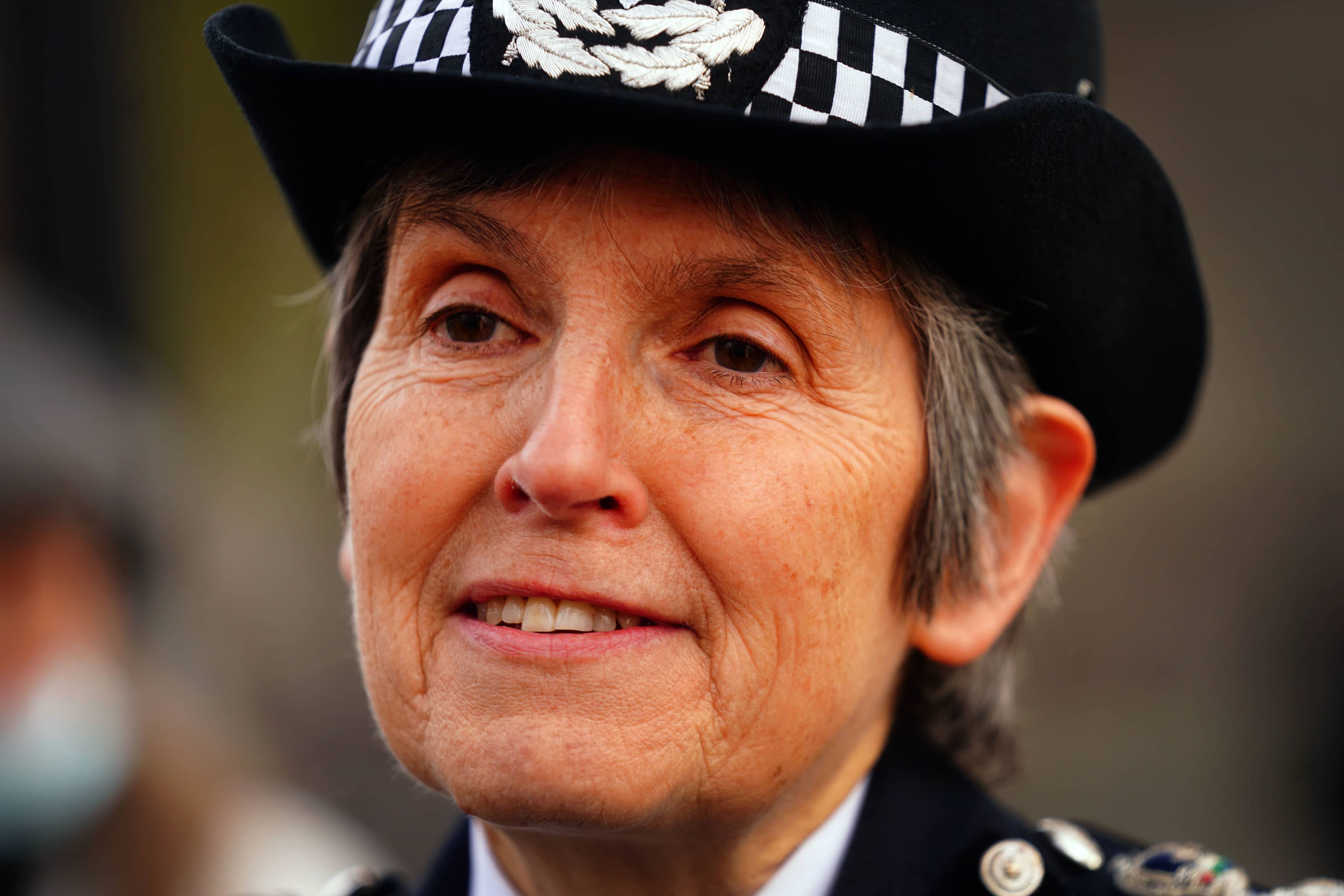As the year draws to a close, it’s worth reflecting on which of our national institutions came out of 2021 in the worst shape. There’s the Foreign Office of course, whose failure to anticipate or prepare for the fall of Kabul was so brutally exposed by its top mandarin’s testimony earlier this month. There’s the Church of England, whose war on parishes came close to whipping up an Anglican insurrection. And then there’s the Conservative party, which seems to have embraced the dirigisme of Pompidou with none of the shiny infrastructure to match.
But in a crowded field, the Metropolitan Police surely take the gold medal for the most incompetent and inept institution. On every count, the force seems to have gone backwards this year. It managed the rare feat of a hat-trick of very public scandals this year without a single resignation. There was the disgrace of the Sarah Everard vigil, when policemen dragged women away in handcuffs for mourning a girl murdered by a serving officer. There was the shambles of the Euro 2020 final, when drunken hooligans marauded around Wembley with the Met nowhere to be seen.
And, perhaps most disturbingly, there was the Daniel Morgan inquiry which branded the force ‘institutionally corrupt’ with chief Cressida Dick personally censured for obstruction and named as one of those responsible for delaying the panel access to the police database. All this, alongside the humiliation of the long-running Extinction Rebellion and Insulate Britain protests at which officers seemed to get more annoyed at by-standers than those actually disrupting the public.
That’s not to mention other disturbing episodes which stain the Met’s recent history. Earlier this month an inquest jury delivered a damning verdict on what they called ‘fundamental failings’ in the force’s investigation of four murders in 2014 and 2015 by serial killer Stephen Port. Accusations from the victim’s families that homophobia played a part in officers being unwilling to investigate comes came 18 months after similar claims that race played a role in the mishandling of the murders last June of Bibaa Henry and Nicole Smallman, two mixed-race sisters killed in a north-west London park. The Met initially refused to take seriously family members’ reports that the women were missing; two officers have since been jailed for criminal misconduct after taking photos of the women’s bodies and sharing images of the crime scene on WhatsApp.
Perhaps excuses can be made for all these incidents. Perhaps the public would be willing to let standards slide if the Metropolitan Police demonstrated it was willing to do the basics properly. But there seems to be a consensus growing, at both a popular and elite level, that London’s police force has effectively given up on dealing with basic theft and criminal inquiries. Whether it’s high-profile incidents like Prince Charles’s aide being accused of selling honours or street-level crime that makes life miserable for others, the indication seems to be that the Met is simply not interested. Exasperation has seen an outpouring of such examples on Twitter today, featuring cases in which officers have been presented with black and white evidence of such crimes, only to immediately close the case before any inquiries can be made.
Take for instance, the New Scientist reporter Matthew Sparkes, who was mugged for his bike three weeks ago. Shortly thereafter, he spotted his bike was advertised on Facebook, listed by the mugger in question. With another account he arranged to buy it back and got an address. He told the Metropolitan police and after a fortnight of chasing them managed to get an appointment for them to join him to pick it up. They didn’t bother to turn up.
Or take the Guido Fawkes journalist Christian Calgie, whose £2,500 MacBook was stolen from his backpack. When he went to a police station with the exact location of the stolen device which was just a few doors down in a second-hand tech shop, the Met closed the case ‘due to no further leads.’ Other than the exact location of a shop, potentially containing other stolen items, what exactly did they need? Similar cases include someone being asked to track down their own cyberstalker; despite providing them with the man’s address, the police closed the case having failed to look up their address.
Now data is not the plural of anecdote. But it’s clear that Londoners’ faith in the Met has fallen in the wake of repeated scandals, with a YouGov survey finding that 47 per cent of women and 40 per cent of men reported declining trust in the police following the Everard case. What’s clear too is the findings of watchdogs, with the HM Inspectorate of Constabulary warning in April that police forces across Britain have ‘increased the number of crimes they decided not to investigate’ during the Covid pandemic.
And yet there seems to be no consequences for anyone at the top. Steerpike has already covered the lamentable track record of Cressida Dick, whose tenure at the helm has been littered with controversies. But the only thing saving Dick is the lack of any halfway decent replacement. Among her senior officers and would be successors include Neil Basu, head of specialist operations at the Met, and Stephen House, the Deputy Commissioner tasked with driving reform.
Basu was the officer who hit the headlines in 2019 for threatening to prosecute journalists who published Kim Darroch’s leaked cables, prompting David Davis to call for his resignation. Stephen House meanwhile was previously the head of Police Scotland who was forced to quit in disgrace in 2015 after a litany of failures. These included officers taking three days to rescue a woman involved in the M9 car crash, the death of a black man in police custody, and rows over his use of armed police patrols and stop and search powers. It doesn’t say much about the Met’s culture that such men are promoted again and again – nor does it reflect well on Dick to have such a dearth of talent around her.
With the Met showing little sign of any willingness to change and with both City Hall and the Home Office unwilling to grasp the nettle of reform, it’s just a tragedy that ordinary Londoners are the ones left to suffer once again.








Comments